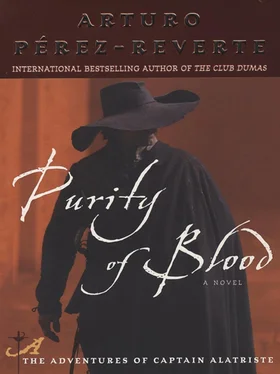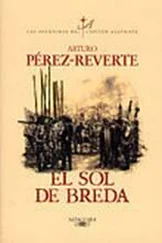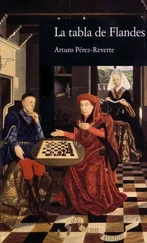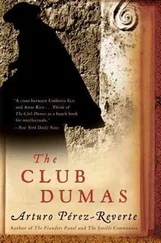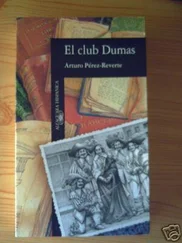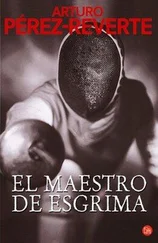Arturo Pérez-Reverte - Purity of Blood
Здесь есть возможность читать онлайн «Arturo Pérez-Reverte - Purity of Blood» весь текст электронной книги совершенно бесплатно (целиком полную версию без сокращений). В некоторых случаях можно слушать аудио, скачать через торрент в формате fb2 и присутствует краткое содержание. Жанр: Старинная литература, на английском языке. Описание произведения, (предисловие) а так же отзывы посетителей доступны на портале библиотеки ЛибКат.
- Название:Purity of Blood
- Автор:
- Жанр:
- Год:неизвестен
- ISBN:нет данных
- Рейтинг книги:3 / 5. Голосов: 1
-
Избранное:Добавить в избранное
- Отзывы:
-
Ваша оценка:
- 60
- 1
- 2
- 3
- 4
- 5
Purity of Blood: краткое содержание, описание и аннотация
Предлагаем к чтению аннотацию, описание, краткое содержание или предисловие (зависит от того, что написал сам автор книги «Purity of Blood»). Если вы не нашли необходимую информацию о книге — напишите в комментариях, мы постараемся отыскать её.
Purity of Blood — читать онлайн бесплатно полную книгу (весь текст) целиком
Ниже представлен текст книги, разбитый по страницам. Система сохранения места последней прочитанной страницы, позволяет с удобством читать онлайн бесплатно книгу «Purity of Blood», без необходимости каждый раз заново искать на чём Вы остановились. Поставьте закладку, и сможете в любой момент перейти на страницу, на которой закончили чтение.
Интервал:
Закладка:
I believe that I have recounted previously that youthful or not, I was obsessively in love with that señorita. Mine was not yet the passion that comes with years and time, when flesh and blood are blended with dreams, and everything takes on a diffuse and dangerous tone. At the time I am referring to, mine was a kind of hypnotic attraction, like peering into an abyss that tempts you and terrifies you at the same time. Only later—the adventure of the convent and of the dead woman was merely a station on that Via Crucis—I learned how misleading the blond curls and blue eyes of that angelic-looking girl could be, the cause of my so often finding myself on the verge of sacrificing my honor and my life. In spite of everything, however, I went on loving her to the end. And even now when Angélica de Alquézar and the others are gone, familiar ghosts in my memory, I swear to God above and to all the demons of Hell—where she is most surely a bright flame today—that I love her still. At times, when memories seem so sweet that I long even for old enemies, I go and stand before the portrait Diego Velázquez painted of her, and stay for hours looking at her in silence, painfully aware that I never truly knew her. But along with the scars that she inflicted, my old heart still holds the conviction that that girl, that woman who inflicted upon me every evil she was capable of, also, in her way, loved me till the day she died.
At the time of this story, however, all that lay before me. The morning that I followed her carriage to the Acero fountain, beyond the Manzanares and the Segovia bridge, Angélica de Alquézar was simply a fascinating enigma. I have already written that she used to ride down Calle Toledo on the way between her domicile and the palace, where she served as a menina, waiting upon the queen and the princesses. The house where she lived, an old mansion on the corner of La Encomienda and Los Embajadores, belonged to her uncle, Luis de Alquézar. It had been the property of the Marqués de Ortígolas until he—ruined by a well-known actress in La Cruz theater, who choked more life out of him than a hangman his victims—had to sell it to satisfy his creditors. Luis de Alquézar had never married, and his one known weakness, aside from the voracious exercise of power that had earned him his position at court, was his orphaned niece, the daughter of a sister who had perished with her husband, a duke, during the storm that lashed the fleet of the Indies in ’21.
I had watched her pass by, as was my habit, from my post at the door of the Tavern of the Turk. Sometimes I followed her two-mule carriage to the Plaza Mayor, or sometimes to the very flagstones of the palace, where I turned and followed my footsteps home. All for the fleeting reward of one of her disturbingly blue glances—which on occasion she deigned to grant me before focusing on some detail of the landscape, or turning toward the duenna who usually accompanied her: a hypocritical, vinegary old woman as worn and thin as a student’s purse. The duenna was one of those creatures of whom it could honestly be said,
Never without her scapular, with more herbs and balms and flummery than all the nostrums that line the shelves of the city’s most bustling pharmacy.
I had, as you perhaps recall, exchanged a few words with Angélica during the adventure of the two Englishmen, and I always suspected that, knowingly or not, she had contributed to our being attacked in El Príncipe theater, where Captain Alatriste came within a hair of losing his hide. But no one is completely in control of whom he hates or whom he loves; so, even knowing that, the blonde girl continued to bewitch me. And my intuition that it was all a devilishly dangerous game did nothing but spur my imagination.
So I followed her that morning through the Guadalajara gate and de la Villa plaza. It was a brilliant day, but instead of continuing toward the palace, her carriage rolled down the de la Vega hill onto the Segovia bridge and across the river whose thin trickle was the eternal source of burlesque and ridicule from the city’s poets. Even the usually cultured and exquisite don Luis de Góngora—quoted here with an apology to Señor de Quevedo—contributed the pretty lines that follow.
An ass drank you in yesterday, and today you are the piss it passed.
I learned later that Angélica had during that time fallen quite pale, and her physician had recommended outings among the groves and promenades near El Duque garden and the Casa de Campo. He’d also prescribed the renowned waters of the Acero fountain, widely believed to cure, among other things, ladies suffering from amenorrhea, or interruption of various delicate female functions. A fountain described by Lope in one of his plays:
Take a walk tomorrow, if you can endure a good half-dipper of Acero-laced water, the miraculous unblocking cure.
Angélica was still very young for that type of problem, but it is true that the cool shade there, the sun and the healing air, were good for her. So that was where she was heading, with carriage, coachman, and duenna, and me following some distance behind. On the other side of the bridge and the river, damas and caballeros were strolling beneath the arching trees. In the Madrid of that day, just as I mentioned in regard to the church of Las Benitas, wherever there were ladies—and the Acero fountain attracted not a few, with or without duennas—there also boiled a pot full of gallants, procurers, amorous rendezvous, and other encounters, any of which, fueled by jealousy, might lead to an exchange of words and insults, drawn swords, and a paseo ended with swordplay. In that hypocritical Spain, always a slave to appearances and “What will people say?” where the honor of fathers and husbands was measured by the chastity of their wives and daughters—to the point of not letting them leave the house—activities that were in principle innocent, such as taking the waters or going to mass, engendered a muddle of adventures, intrigues, and liaisons.
I am pretending, my beloved husband, to be needing “regulation,” that I may deceive a jealous father and an aunt’s intimidation.
So I apologize to Your Mercies for the youthful spirit of chivalry and adventure with which I followed behind the coach of my beloved, knowing I was heading to a place well known for intrigue, and lamenting only that I was not yet old enough to wear a gleaming sword at my belt with which to carve rivals into little pieces. I was a long way from imagining that, with time, my wishes would be fulfilled, point by point. But when the hour actually came for me to kill for Angélica de Alquézar—and I did kill for her—neither she nor I were children. All my romancing had ceased, and life was no longer a game.
Pardiez. I wander in circles, with digressions and leaps in time that take me away from the thread of my tale. So I shall pick it up again by calling Your Mercies’ attention to something central to my story: the enthusiasm at seeing my beloved that caused me to commit a careless act I would later deeply regret.
Ever since don Vicente de la Cruz’s visit I had thought I detected the movement of suspicious people around our house. Nothing truly disturbing, it is true; only a couple of faces that were not usually seen either on Calle del Arcabuz or in the Tavern of the Turk. I suppose that this in itself was not overly strange, for on Cava Baja, as well as other streets in the neighborhood, there were a number of inns. But that morning I had noticed something I would have given more consideration to had I not been waiting for Angélica to pass by. It was only later that I gave it proper thought, when I had ample time to mull over the events that had brought me to the sinister place I found myself in. Or where, to be more accurate, I found myself forced to go.
Читать дальшеИнтервал:
Закладка:
Похожие книги на «Purity of Blood»
Представляем Вашему вниманию похожие книги на «Purity of Blood» списком для выбора. Мы отобрали схожую по названию и смыслу литературу в надежде предоставить читателям больше вариантов отыскать новые, интересные, ещё непрочитанные произведения.
Обсуждение, отзывы о книге «Purity of Blood» и просто собственные мнения читателей. Оставьте ваши комментарии, напишите, что Вы думаете о произведении, его смысле или главных героях. Укажите что конкретно понравилось, а что нет, и почему Вы так считаете.
